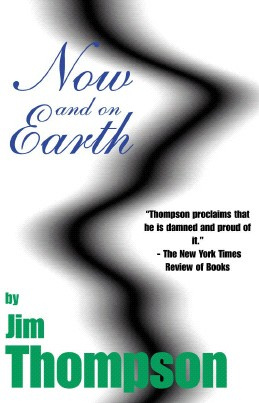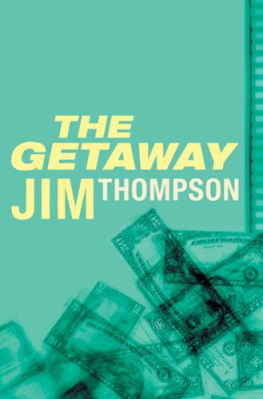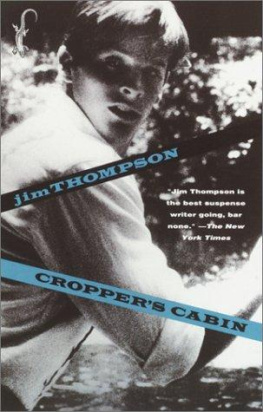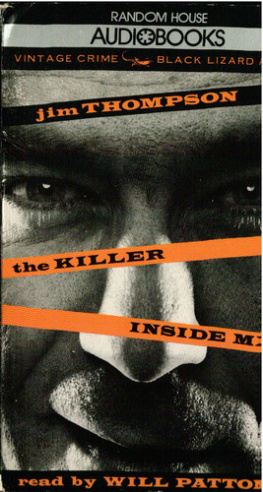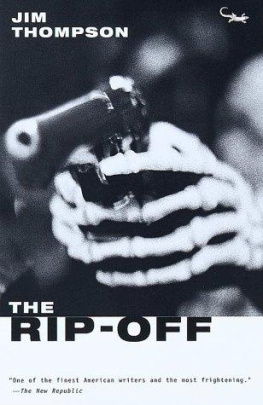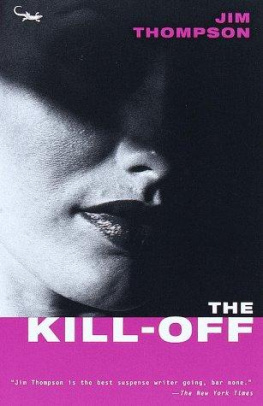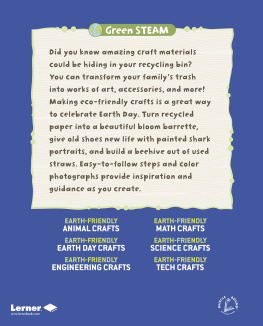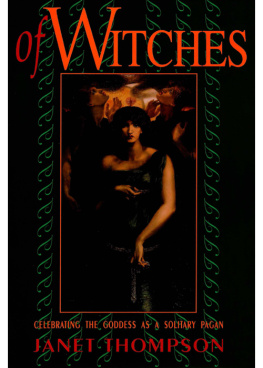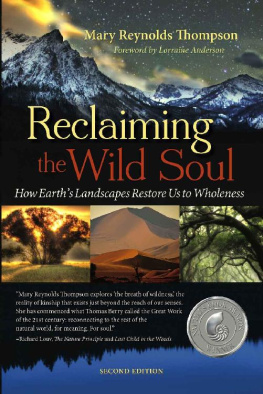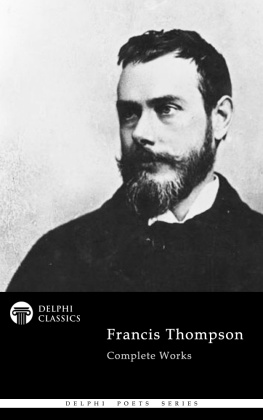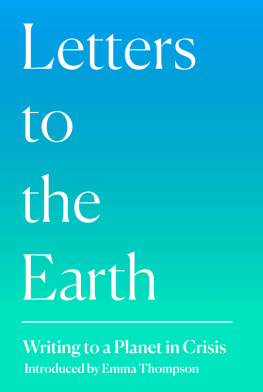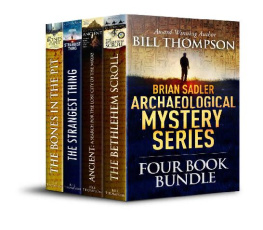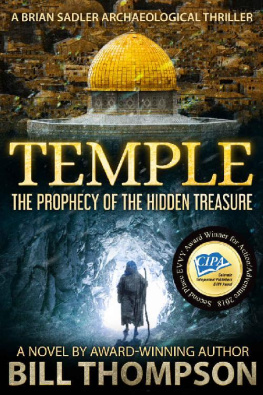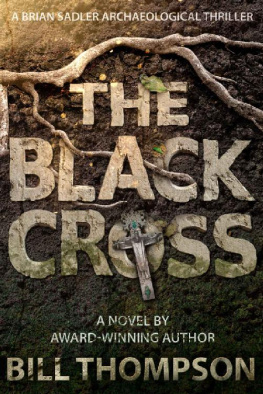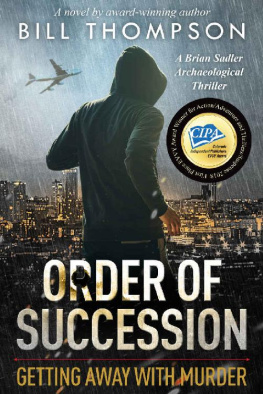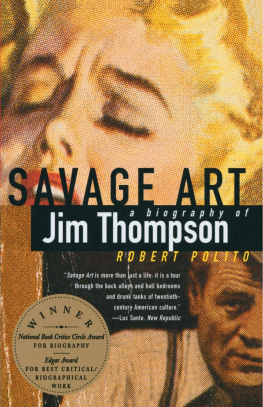Jim Thompson - Now and On Earth
Here you can read online Jim Thompson - Now and On Earth full text of the book (entire story) in english for free. Download pdf and epub, get meaning, cover and reviews about this ebook. genre: Science. Description of the work, (preface) as well as reviews are available. Best literature library LitArk.com created for fans of good reading and offers a wide selection of genres:
Romance novel
Science fiction
Adventure
Detective
Science
History
Home and family
Prose
Art
Politics
Computer
Non-fiction
Religion
Business
Children
Humor
Choose a favorite category and find really read worthwhile books. Enjoy immersion in the world of imagination, feel the emotions of the characters or learn something new for yourself, make an fascinating discovery.
- Book:Now and On Earth
- Author:
- Genre:
- Rating:3 / 5
- Favourites:Add to favourites
- Your mark:
- 60
- 1
- 2
- 3
- 4
- 5
Now and On Earth: summary, description and annotation
We offer to read an annotation, description, summary or preface (depends on what the author of the book "Now and On Earth" wrote himself). If you haven't found the necessary information about the book — write in the comments, we will try to find it.
Now and On Earth — read online for free the complete book (whole text) full work
Below is the text of the book, divided by pages. System saving the place of the last page read, allows you to conveniently read the book "Now and On Earth" online for free, without having to search again every time where you left off. Put a bookmark, and you can go to the page where you finished reading at any time.
Font size:
Interval:
Bookmark:
APPRECIATION
Was Thompson physically big? You got me. He was from Texas or Oklahoma or somewhere like that, so I imagine him as big, but authors are a lot of times like the fat disc jockey with the thin voice-the ones who write the most virile prose are the ones who, when you finally see their photos, turn out to be pasty pudgy types who look like insurance adjustors. Never mind; he'll always be Big Jim to me, because he wrote big.
Although that needs a bit of explanation.
The settings of his novels were never big; the characters were rarely big (Doc McCoy of The Getaway may or may not be an exception); the crimes themselves were never the grand-scale jobs readers have some to expect from fellows like Frederick Forsythe with his Jackal or Jack Higgins with his Nazis out to get Winston Churchill-Big Jim's criminals, like James Cain's or Shane Stevens's, were usually caught in a web of cheap bucks and cheap fucks. But Thompson's books were daringly, breathtakingly big in scope and risk and point of attack. Edmund Wilson (who also wrote a wonderfully acerbic and totally wrongheaded essay called "Who Cares Who Killed Roger Ackroyd?") once condemned James Cain's The Postman Always Rings Twice as nothing more important than a jungle-beat in a lunchroom. It wasn't that he was wrong; it was just that it was a comment from a guy who had never spent much time in The Lunchrooms of America.
Nevertheless, lunchrooms did and do exist; small towns such as the one so devastatingly depicted in Thompson's Pop. 1280 did and do exist; smalltime hoods and desperate people on the run did and do exist. They may not dine at the Waldorf, but the intellectual businessmen and menopausal women who do are not all of the world.
Wilson once took Nelson Algren to task for his "cloacal approach to literature," as though shit did not exist but as those of us who are regular would willingly attest, it does. And not all of it is in the toilets and sewers. Sometimes it overflows into the streets, the lunchrooms, and the human mind.
Big Jim Thompson was and is big in my own mind because he wasn't afraid of the jungle in the lunchroom, wasn't afraid of the shit that sometimes backs up in the sewers underlying more ordinary social consciousness and interaction. No one likes it when the doctor puts on his rubber glove, asks him to bend over, and then goes prospecting but someone has to look for those irregularities that may signal tumors and cancers-tumors and cancers that may exist in the bowel of society as well as that of the individual. Dreiser knew it; Melville knew it; B. Traven knew it; Dostoyevsky knew it. Thompson also knew the truth: the literature of a healthy society needs proctologists as well as brain surgeons.
Know what I admire the most? The guy was over the top. The guy was absolutely over the top. Big Jim didn't know the meaning of the word stop. There are three brave lets inherent in the foregoing. He let himself see everything, then he let himself write it down, then he let himself publish it.
His novels are terrifying cameos of small-town hurt, hypocrisy, and desperation. They are urgent in their ugliness, triumphant in their tawdriness. He wrote goddam good stories, but goddam good stories are not literature. Who knows that better than I do? What makes Thompson's books literature is his unflinching flatly lighted examination of the alienated mind, the psyche wired up like a nitro bomb, of people living like diseased cells in the bowel of American society.
Thompson was not always great-but at his best he was the best there was because he wouldn't stop. The reader is captured by Thompson's feverish tales, carried on by the understanding that he will go on until the end, however ugly, mean, or horrible that end may be (and if you have only seen the film of The Getaway, you have no idea of the existential horrors awaiting Doc and Carol McCoy following the point where Sam Peckinpah ended the tale).
Someone has to examine the stool samples of society; someone has to describe those tumors from which more cultured people shy away. Jim Thompson was one of the few.
He's dead, and he doesn't backlist well, but not everyone has forgotten-thank God, they never do. The great ones seem to always find their springs and channels. And I think that is why you are here. Now, my friend, buckle your seatbelt and grab your gas-mask.
You are going into the darkness without me, without Eudora Welty, without John Updike or Truman Capote or Edmund Wilson. You are going there with a genuine maniac of the human underside. You may be revolted. You may turn away, gasping with a sickened sort of laughter. But Big Jim Thompson will not stop and my guess is this: neither will you.
Stephen King Bangor, Maine September 1985
Jo was across the street, playing with the minister's little girl. Watching for me, too, I guess. She came streaking across to my side, corn-yellow curls bobbing around her rose-and-white face. She hugged me around the knees and kissed my hand-something I don't like her to do, but can't stop.
She asked me how I liked my new job, and how much pay I was getting, and when payday was-all in one breath. I told her not to talk so loud out in public, that I wasn't getting as much as I had with the foundation, and that payday was Friday, I thought.
"Can I get a new hat then?"
"I guess so. If it's all right with Mother."
Jo frowned. "Mother won't let me have it. I know she won't. She took Mack and Shannon downtown to buy 'em some new shoes, but she won't get me no hat."
"'No hat'?"
"Any hat, I mean."
"Where'd she get the money to go shopping with? Didn't she pay the rent?"
"I guess not," Jo said.
"Oh, goddam!" I said. "Now, what the hell will we do? Well, what are you gaping for? Go on and play. Get away from me. Get out of my sight. Go on, go on!"
I reached out to shake her, but I caught myself and hugged her instead. I cannot stand anyone who is unkind to children-children, dogs, or old people. I don't know what is getting the matter with me that I would shake Jo. I don't know.
"Don't pay any attention to me, baby," I said. "You know I didn't mean anything."
Jo's smile came back. "You're just tired, that's all," she said. "You go in and lie down and you'll feel better."
I said I would, and she kissed my hand again and scurried back across the street.
Jo is nine-my oldest child.
Font size:
Interval:
Bookmark:
Similar books «Now and On Earth»
Look at similar books to Now and On Earth. We have selected literature similar in name and meaning in the hope of providing readers with more options to find new, interesting, not yet read works.
Discussion, reviews of the book Now and On Earth and just readers' own opinions. Leave your comments, write what you think about the work, its meaning or the main characters. Specify what exactly you liked and what you didn't like, and why you think so.

